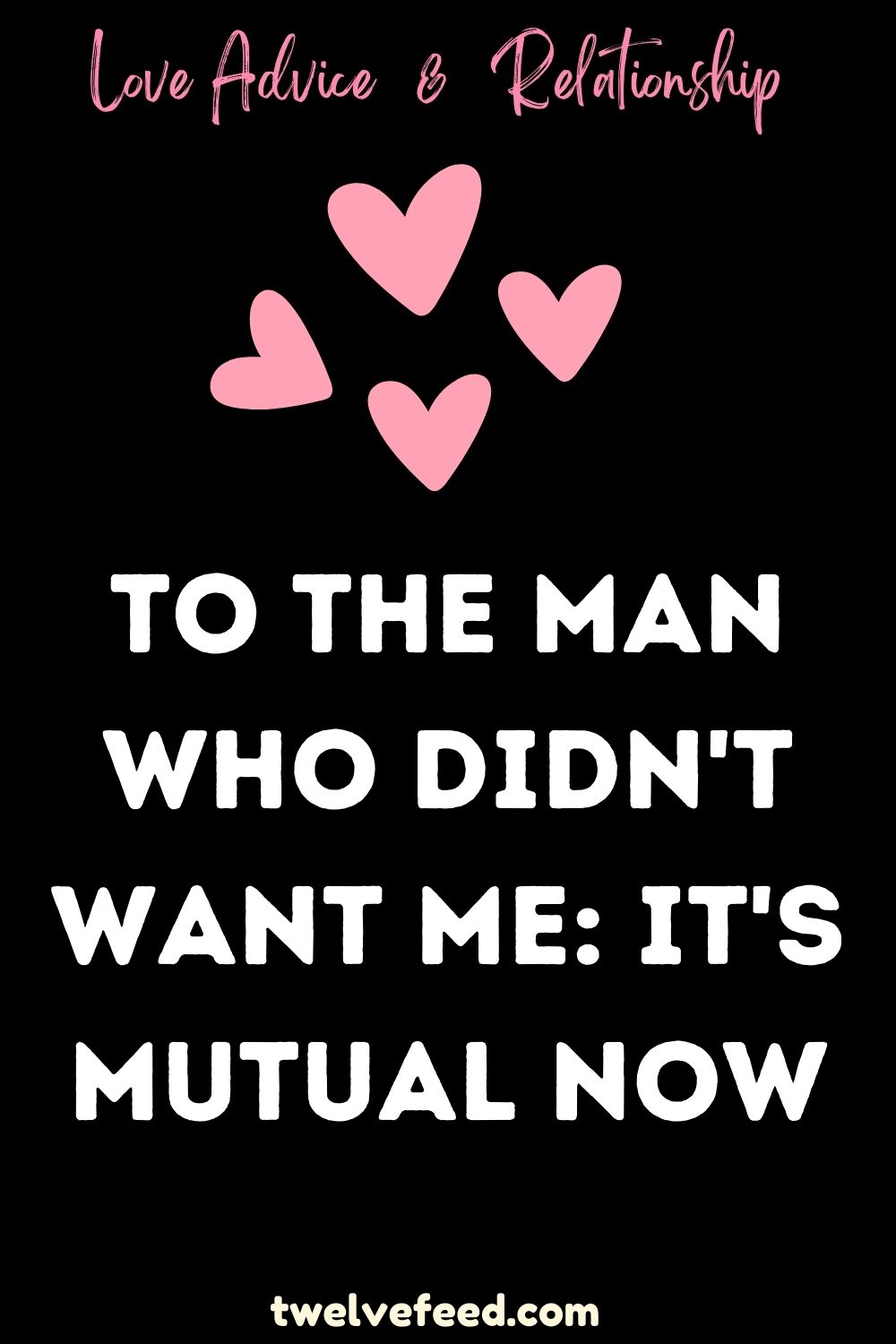
In the intricate dance of relationships, rejection can be a bitter pill to swallow. It pierces through our armor of self-assurance, leaving us vulnerable and questioning our worth. Yet, amidst the rubble of shattered expectations, there lies an unexpected revelation: sometimes, rejection is not a one-sided affair. This is an ode to the man who didn’t want me, as we discover that it’s mutual now.
Understanding Rejection
Exploring its impact
Rejection is akin to a sudden gust of wind, knocking the wind out of our sails and leaving us adrift in a sea of uncertainty. It triggers a cascade of emotions, from disbelief to sorrow, and often, a bruised ego. We find ourselves grappling with feelings of inadequacy, wondering what we could have done differently to warrant acceptance.
Coping mechanisms
In the aftermath of rejection, we turn to various coping mechanisms to soothe our wounded spirits. Some bury themselves in work, seeking solace in productivity, while others seek refuge in the embrace of friends and family. Yet, beneath the facade of composure, the sting of rejection lingers, a constant reminder of our vulnerability.
Mutual Consent
The evolution of feelings
As time passes, the sharp edges of rejection begin to soften, paving the way for introspection and self-discovery. We come to realize that perhaps, what we once deemed as rejection was, in fact, a blessing in disguise. Our feelings undergo a metamorphosis, transforming from resentment to understanding, as we acknowledge the validity of the other person’s perspective.
Finding common ground
In the wake of mutual consent, we find ourselves standing on equal footing, liberated from the shackles of unrequited affection. We share a newfound camaraderie, forged from the embers of failed romance. No longer adversaries, we navigate the landscape of our emotions with a sense of mutual respect and understanding.
Moving Forward
Embracing closure
With mutual consent comes closure, a sense of finality that allows us to bid farewell to the ghosts of our past. We release our grip on what could have been, embracing the present with open arms. In letting go, we create space for new beginnings, unfettered by the chains of regret.
Opportunities for growth
As we embark on separate journeys, we carry with us the lessons learned from our shared experience. Rejection becomes a catalyst for growth, propelling us towards self-improvement and personal development. We emerge from the crucible of rejection stronger and more resilient, ready to face whatever challenges lie ahead.
Conclusion
In the grand tapestry of life, rejection is but a thread, weaving its way through the fabric of our existence. To the man who didn’t want me, know that it’s mutual now. We stand as equals, united by our shared experience of rejection and the resilience it has instilled within us. As we bid farewell to what could have been, we embrace the uncertainty of the future with open hearts and a renewed sense of purpose.
FAQs
- Is mutual rejection common in relationships?
- Mutual rejection can occur in various types of relationships, whether romantic or otherwise. It often arises when both parties realize that their feelings are not reciprocated.
- How can one cope with rejection?
- Coping with rejection requires time and self-reflection. It’s essential to surround oneself with a supportive network of friends and family and to engage in activities that bring joy and fulfillment.
- Can rejection lead to personal growth?
- Yes, rejection can catalyze personal growth and development. It challenges us to reevaluate our priorities and goals, ultimately leading to greater self-awareness and resilience.
- Is it possible to remain friends after mutual rejection?
- While maintaining a friendship after mutual rejection can be challenging, it’s not impossible. It requires open communication, mutual respect, and a willingness to set aside romantic feelings in favor of platonic companionship.
- How can one find closure after mutual rejection?
- Closure after mutual rejection comes from accepting the situation for what it is and letting go of any lingering attachment or resentment. Engaging in self-care activities and focusing on personal growth can aid in the closure process.





